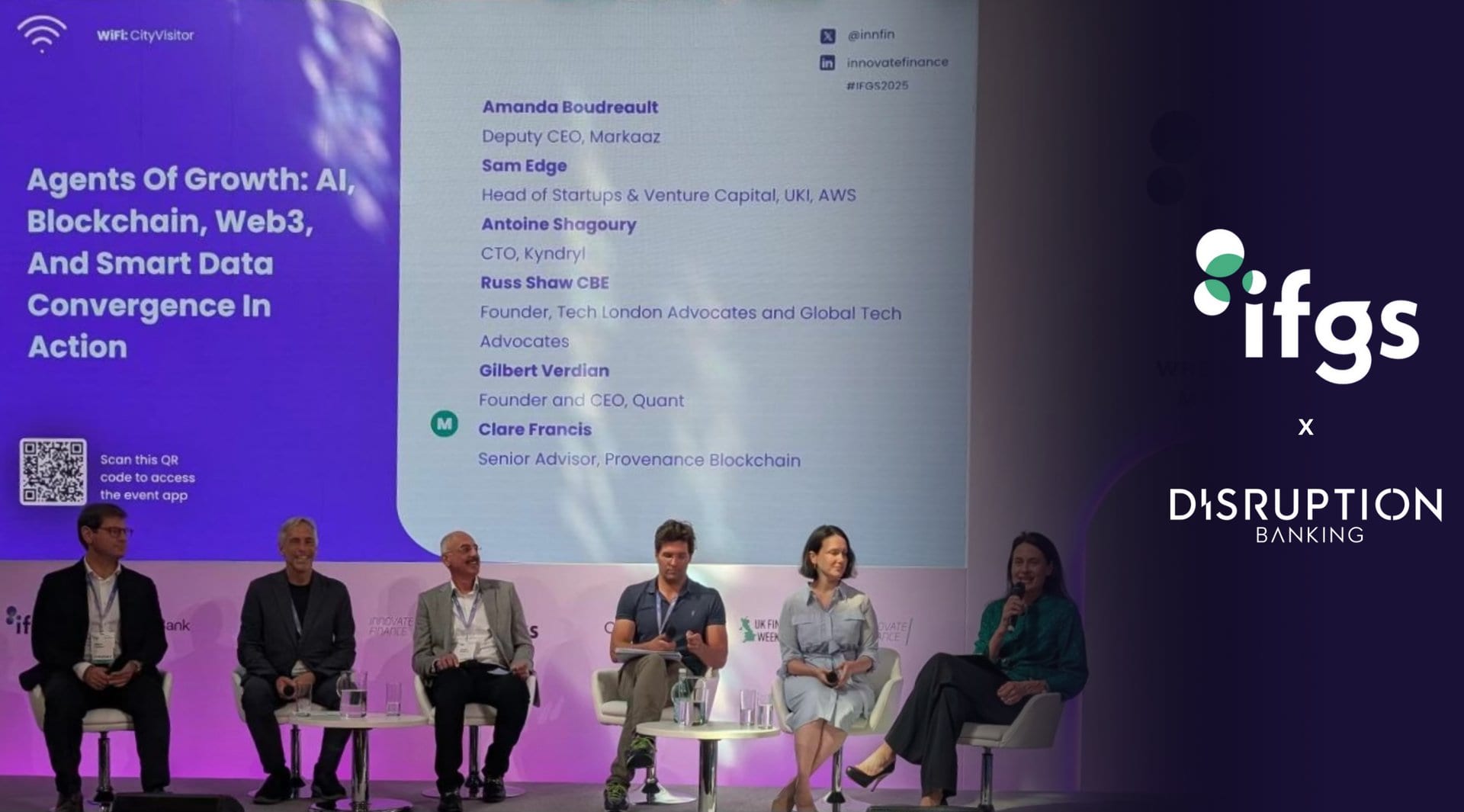At today’s IFGS event, the agenda featured several important speakers. This morning Thought Machine’s Paul Taylor talked about how technology is more important than politics. Little did he know that this afternoon’s keynote speech by a ‘Senior Cabinet Minister’, as the agenda called them, would exceed the audience’s expectations.
The Right Honourable Rachel Reeves MP, the UK’s Chancellor of the Exchequer, took the stage at the Summit in the afternoon. This was the mystery Senior Cabinet Minister referred to in the agenda. Rachel shared topics like her recent meeting in Washington D.C. with Hester Peirce, as well as an important initiative that the UK government is championing. The Private Intermittent Securities and Capital Exchange System or PISCES, which was first mentioned on the government’s website in March 2024. The Conservatives first championed this project; however, the Labour Party has decided to continue it.
The UK is backing the builders of FinTech to make it a huge UK success story. New legislation for digital assets and further US-UK cross-border collaboration as the two largest financial capitols.
— Gilbert Verdian (@gverdian) April 29, 2025
Announced by Chancellor @AngelaRayner of @hmtreasury at IFGS today.… pic.twitter.com/3wwuLS7xXi
PISCES is a new type of stock market for private company shares. It forms a key part of the UK Government’s strategy to reinvigorate capital markets through pro-innovation and pro-growth policies. The hope is that PISCES can support companies in scaling up and growing, by providing liquidity, helping shareholders, including employee shareholders, to realise their gains.
Agents of Growth Panel at IFGS2025
Shortly after the UK Chancellor left London’s prestigious Guildhall, a panel of speakers took to the stage to discuss “Agents Of Growth: AI, Blockchain, Web3, And Smart Data Convergence In Action.” The panel was moderated by Clare Francis, Senior Advisor, Provenance Blockchain. Clare was joined on stage by Amanda Boudreault, Deputy CEO, Markaaz, Sam Edge, Head of Startups & Venture Capital, UKI, AWS, Antoine Shagoury, CTO of Kyndryl, Russ Shaw CBE, Founder, Tech London Advocates and Global Tech Advocates, and, finally, Gilbert Verdian, Founder and CEO of Quant.
At DisruptionBanking, we’ve been following Gilbert’s exploits since we first met him at Money2020 in the summer of 2019. His timing, following on from the UK Chancellor’s talk, couldn’t have been better. Cometh the moment, cometh the man. Gilbert never disappoints.
Future Payments and Programmable Money
Gilbert started his talk by explaining how we are in the middle of a “convergence event.” He highlighted how banks and traditional financial institutions have been monitoring blockchain over the last ten years. They have been analysing the value that this new technology can bring to the economy. And, today, he believes that these same banks and financial institutions are “all in.”
Gilbert shared how first we all learned how data was the new oil, but how now everything is a payment. “Everything we do, we can transact,” he explained.
To enable payments and transactions, he highlighted how it’s key to have systems that are not siloed.
“It’s key to integrate and interoperate with existing financial systems, but also non-financial systems,” Gilbert continued. “Blockchains are an enabler for us to transact globally with any piece of information, any piece of data, or any transaction.”
Gilbert shared how banks are no longer experimenting with blockchain. The technology is no longer being ‘piloted’, instead it is going live and enabling new instruments.
“You can add AI logic to programmable money to automate the world,” he added. “Business runs on process. If you take friction out of that system, then you’ve got growth and innovation.”
Interoperability Has Been Solved
Much like how mobile networks, when they initially started operating, would only allow calls within their own network, siloed networks have been a pain point for financial services too.
“What blockchain got wrong ten years ago was that blockchain companies came in and said: ‘we need to rip out core banking and exchanges, and we need to put this new thing in called blockchain,’” Gilbert stated.
He went on to explain how unreasonable this was. From both a cybersecurity and a resilience perspective, this idea was too risky. Instead, as the industry has matured, people have integrated and overlaid blockchain onto the existing financial system. If a system works, why change it? Gilbert pointed out. Blockchain doesn’t need to replace existing systems, it can work side by side.
“You want blockchain to complement existing financial systems,” he added. “You want it to enable the transition from traditional finance to the next generation of finance.”
Stablecoins are now mainstream, Gilbert highlighted. It’s no longer a matter of going to a dodgy issuer called Tether where you used to buy your crypto. Digital assets today are legitimate. Regulation is going to make using them much easier and clearer.
Gilbert is looking forward to this new financial future where programmable money and interoperability will help transform today’s financial landscape. Today we may not own our data, but in a few years, he predicts this will change. When it does, all of us will benefit as a society.
$QNT #Quant #Blockchain #IFGS2025 #PISCES #RachelReeves #GilbertVerdian #Interoperability #ProgrammeableMoney
Author: Andy Samu
See Also:
Thought Machine’s Taylor: Tech Outshines Politics | Disruption Banking
How Strong Will Quant (QNT) be in 2025? | Disruption Banking















